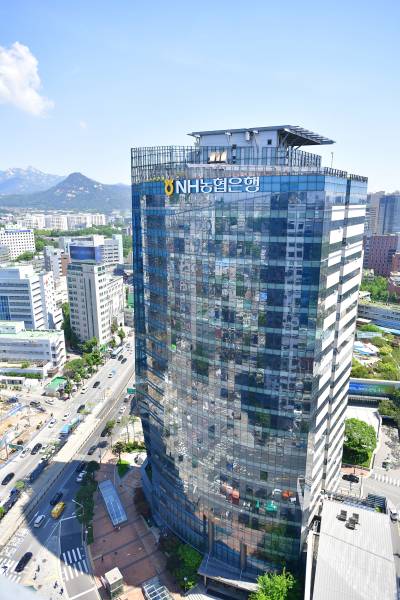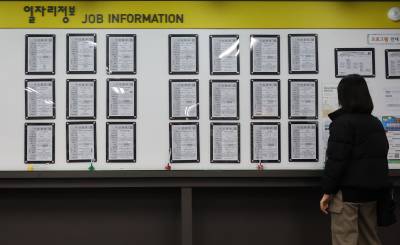- 비스타의 화려한 데뷔
마이크로소프트의 최신 윈도 버전인 비스타(Vista)가 지난주 출시됐다. 기자회견과 파티, 록밴드 공연과 함께 뉴욕 시내에서는 곡예사를 동원한 ‘인간 광고판’이 등장했고, 수백만 달러가 들어간 광고 캠페인도 펼쳐졌다. 하지만 이렇게 떠들썩한 열기 속에 출시되는 컴퓨터 운용체제(Operating System: OS)는 비스타가 마지막이라는 관측이 있다. 정말 그럴까? 사실 지금은 새로운 OS가 출시됐다 해서 개선군 맞이하듯 갈채를 보내며 호들갑을 떨어야 할 시대는 아니다. 지난주 비스타 출시를 기념하는 한 행사장에는 “비스타와 함께 ‘와우’의 세계에 빠져보세요(With Vista the Wow Starts Now)”라는 현수막이 나부꼈다. 무대에는 마이크로소프트의 최고경영자(CEO) 스티브 발머가 다섯 명의 중년 임원과 자리를 함께했다. 모두 반도체나 컴퓨터 제조업으로 잔뼈가 굵은 이들이었다. 그들은 ‘흥분’이라는 말을 누가 더 많이 하는지 시합이라도 벌인 듯했다. 하지만 자정에 출시된 비스타 업그레이드용 디스크를 사려는 사람들이 컴퓨터 상점 주변에 장사진을 치지는 않았다. 스티브 발머 자신도 업그레이드 디스크를 구입할 정도로 비스타에 매료될 윈도 사용자는 소수에 불과하다고 말했다. 대신 현재 쓰는 컴퓨터를 교체할 때 비스타를 설치하리라는 분석이다. 수년에 걸쳐 진행되는 과정이다. 사실 윈도95 같은 OS가 채택되는 과정도 그와 유사했다. 차이가 있다면 2007년에는 OS가 중요하긴 해도 사람들이 그 때문에 “와우”하고 경탄하지는 않는다는 점이다. 분명히 OS 업그레이드는 더욱 강력한 프로세서와 무한대로 늘어나는 저장 용량, 미디어 이용의 폭주와 안정된 초고속인터넷 연결 등 첨단 기술의 혜택을 마음껏 누리려면 필수적이다. 또 확실히 비스타는 과거의 OS보다 훨씬 진일보한 제품이다(특히 사이버 범죄자로부터 PC를 보호하는 기능이 크게 강화됐다). 하지만 근년 들어 진정한 기술혁신은 서로 연결된 인터넷 이용자들의 결집력을 이용하는 인터넷 기반의 신생업체들에서 나왔다. 구글, 플리커(Flickr), 유튜브가 대표적이다. 또 한 가지 체험을 너무나 훌륭하게 구현해 우리의 일상을 변화시킨 신제품들이 열풍을 일으켰다. 블랙베리(통신 기능을 갖춘 PDA 형태의 스마트폰)나 아이팟, 마이크로소프트의 게임단말기 X박스 등이 여기에 속한다. 반면 OS는 기반시설일 뿐이다. OS의 새 버전이 나왔다고 소란스럽게 축하하는 일은 기초공사만 끝났다고 잔치를 벌이는 것이나 다름없다. 그렇다면 비스타가 미국 10대들의 호화찬란한 생일파티를 보여주는 MTV 프로그램 ‘My Super Sweet 16’ 식의 볼거리를 제공하는 최후의 OS 출시가 될까?(엄밀히 말해 비스타와 사무 생산성을 개선한 오피스 2007 출시를 겸한 행사였다.) 이번 출시 때문에 다보스에서 날아온 빌 게이츠 회장은 그렇지 않다고 잘라 말했다. 게이츠는 “윈도가 새로 나올 때마다 사람들이 그런 말을 했다”며 자바 프로그래밍 언어가 윈도 수요를 없앤다거나 네트워크 컴퓨터가 PC를 대체하리라는 관측을 예로 들었다. “사람들은 ‘늑대다’라는 외침에 매번 속으면서도 금방 잊어버리는 경향이 있는 듯하다. [차세대] OS가 음성인식 기능과 카메라, 디지털 잉크가 기본 장착될 만큼 발전할까? 아니라고 내기 걸어도 좋다. 하지만 마이크로소프트가 이 분야에서 이루는 연구 성과는 사용자에게 매우 이로우리라 생각한다.” 게이츠는 비스타도 2년에 한 번, 심지어 매년 업그레이드를 하는 업계의 경향을 따라갈지 모른다고 인정했다. 하지만 획기적인 OS 출시는 비스타가 끝이 아니라는 주장을 굽히지 않았다. 게이츠는 비스타를 이을 차기 OS는 2008년 중반 자신이 경영 일선에서 물러나기 전에 윤곽이 정해지며, 대략 2011년으로 예정된 이 신제품의 출시 역시 요란하게 세간의 이목을 집중시키리라고 내다봤다. 게이츠는 그 때 가서 “비스타도 모자란 점이 얼마나 많았는지 알려주겠다”고 싱긋 웃으며 말했다. 와우!
Vista's Super Sweet 16 Rollout Is Vista, Microsoft's latest version of Windows - released last week with press events, parties, rock bands, a circuslike "human billboard" in downtown New York City and a multimillion-dollar ad campaign - the last operating system to launch in a sea of hype? Clearly, we're no longer in the era when the rollout of a computer OS is greeted with the hosannas showered upon a conquering army returning home. At one of the events last week held under banners declaring that with Vista the wow starts now, Microsoft CEO Steve Ballmer sat on a stage with five other middle-aged executives, all of Whom worked for chipmakers or computer manufacturers, in what seemed to be a contest over who could say the word "excitement" the most. But the midnight release of Vista did not generate blocks-long lines serpentining around computer stores to buy an upgrade. Ballmer himself explained that only a small percentage of Windows users would be sufficiently thrilled by Vista to purchase an upgrade. Instead, people will get Vista when they replace their current PCs with a new one, a process that will occur over a period of years. True, that's not terribly different from the way that systems like Windows 95 were adopted. The difference is that in 2007, operating systems, however important, aren't where people seek the wow factor. Obviously, OS upgrades are essential for helping our computers keep pace with mightier processors, gluttonous storage, skyrocketing use of media and persistent high-speed connectivity, among other mileposts in the march of high tech. And Vista indeed is an improvement over its predecessors (especially in terms of securing your PC from malfeasants). But the real excitement in technology in recent years has come from Internet-based start-ups that take advantage of the aggregate power of a connected population, like Google, Flickr or YouTube. We've also been wowed by devices dedicated to delivering a single experience so well that they transform our behavior - the BlackBerry, the iPod or game consoles like Microsoft's own Xbox. In comparison, operating systems are infrastructure, and wildly feting a new version is like throwing a party for scaffolding. So will this Vista launch be the last OS rollout that comes on like an MTV "My Super Sweet 16" on steroids? (In fairness, Microsoft paired the Vista celebration with a launch of its revamped productivity suite, Office 2007.) Chairman Bill Gates, who jetted in from Davos for the events, insists that it won't be. "People have said that at every major Windows release," he says, citing predictions that the Java programming language would obviate the need for Windows, or network computers would kill the PC. "People don't seem to have a good memory about having cried wolf every single time. Will the [next] operating system advance so that speech and vision and ink are built in? Well, you can bet against that, but the breakthroughs that Microsoft research is making in these things [will be] very advantageous to users." Gates does admit that with Vista, Microsoft may follow the industry trend of doing significant upgrading every couple of years, maybe even yearly. But he won't budge on his insistence that the era of the big release isn't over. He says that the major decisions on Vista's successor will be made before his departure from a full-time role at Microsoft in mid-2008, and the release of this newbie in 2011 or whenever will generate just as much hubbub as previous launches. At that time, he jokes, "We'll tell you how Vista just wasn't good enough." Oh, wow.
Vista's Super Sweet 16 Rollout Is Vista, Microsoft's latest version of Windows - released last week with press events, parties, rock bands, a circuslike "human billboard" in downtown New York City and a multimillion-dollar ad campaign - the last operating system to launch in a sea of hype? Clearly, we're no longer in the era when the rollout of a computer OS is greeted with the hosannas showered upon a conquering army returning home. At one of the events last week held under banners declaring that with Vista the wow starts now, Microsoft CEO Steve Ballmer sat on a stage with five other middle-aged executives, all of Whom worked for chipmakers or computer manufacturers, in what seemed to be a contest over who could say the word "excitement" the most. But the midnight release of Vista did not generate blocks-long lines serpentining around computer stores to buy an upgrade. Ballmer himself explained that only a small percentage of Windows users would be sufficiently thrilled by Vista to purchase an upgrade. Instead, people will get Vista when they replace their current PCs with a new one, a process that will occur over a period of years. True, that's not terribly different from the way that systems like Windows 95 were adopted. The difference is that in 2007, operating systems, however important, aren't where people seek the wow factor. Obviously, OS upgrades are essential for helping our computers keep pace with mightier processors, gluttonous storage, skyrocketing use of media and persistent high-speed connectivity, among other mileposts in the march of high tech. And Vista indeed is an improvement over its predecessors (especially in terms of securing your PC from malfeasants). But the real excitement in technology in recent years has come from Internet-based start-ups that take advantage of the aggregate power of a connected population, like Google, Flickr or YouTube. We've also been wowed by devices dedicated to delivering a single experience so well that they transform our behavior - the BlackBerry, the iPod or game consoles like Microsoft's own Xbox. In comparison, operating systems are infrastructure, and wildly feting a new version is like throwing a party for scaffolding. So will this Vista launch be the last OS rollout that comes on like an MTV "My Super Sweet 16" on steroids? (In fairness, Microsoft paired the Vista celebration with a launch of its revamped productivity suite, Office 2007.) Chairman Bill Gates, who jetted in from Davos for the events, insists that it won't be. "People have said that at every major Windows release," he says, citing predictions that the Java programming language would obviate the need for Windows, or network computers would kill the PC. "People don't seem to have a good memory about having cried wolf every single time. Will the [next] operating system advance so that speech and vision and ink are built in? Well, you can bet against that, but the breakthroughs that Microsoft research is making in these things [will be] very advantageous to users." Gates does admit that with Vista, Microsoft may follow the industry trend of doing significant upgrading every couple of years, maybe even yearly. But he won't budge on his insistence that the era of the big release isn't over. He says that the major decisions on Vista's successor will be made before his departure from a full-time role at Microsoft in mid-2008, and the release of this newbie in 2011 or whenever will generate just as much hubbub as previous launches. At that time, he jokes, "We'll tell you how Vista just wasn't good enough." Oh, wow.
ⓒ이코노미스트(https://economist.co.kr) '내일을 위한 경제뉴스 이코노미스트' 무단 전재 및 재배포 금지










![약 5분 만에 인생꿀팁 알려드립니다 ‘비치키’ [김지혜의 ★ 튜브]](https://image.isplus.com/data/isp/image/2025/04/27/isp20250427000053.400.0.jpg)
![“늘 마지막이라고 생각”… 예예, 미워할 수 없는 ‘킹’ 유발자 [IS인터뷰]](https://image.isplus.com/data/isp/image/2025/03/11/isp20250311000307.400.0.jpg)



당신이 좋아할 만한 기사
브랜드 미디어
브랜드 미디어
버추얼 아이돌 성희롱·모욕도 법적 처벌 될까[별별법]
세상을 올바르게,세상을 따뜻하게일간스포츠
이데일리
이데일리
QWER, 6월 컴백…"음악적 성장 증명할 것"
대한민국 스포츠·연예의 살아있는 역사 일간스포츠일간스포츠
일간스포츠
일간스포츠
"균형 잡힌 대안"…첫 美 출신 교황 레오 14세는 누구?
세상을 올바르게,세상을 따뜻하게이데일리
이데일리
이데일리
주기적 감사인 지정이 되레 투자자 혼란 가중…“명확한 지침 필요”
성공 투자의 동반자마켓인
마켓인
마켓인
“상반기 기네스는 따놓은 당상” 이수앱지스, 이라크 공급 개시
바이오 성공 투자, 1%를 위한 길라잡이팜이데일리
팜이데일리
팜이데일리